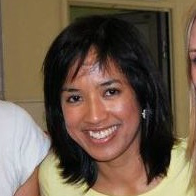The past few months have been strange. While Colombia is busy escalating and preparing for the peace process due in just a little more than a month, and I was summing up my time in the Peace Community of San José de Apartadó, in other parts of the world, human rights violations continued to unfold.
 It is a bit disheartening to realise that injustice easily reigns as soon as the average people – that is, us – turn a blind eye. Though, admittedly, each of us only have one body, and we can only do so much.
It is a bit disheartening to realise that injustice easily reigns as soon as the average people – that is, us – turn a blind eye. Though, admittedly, each of us only have one body, and we can only do so much.
Nevertheless, there is a powerful tool that exists that transcends borders: the power of narrative. (I would say the power of the pen, except that I haven't touched a pen.)
And so, here I am, writing a narrative on what is taking place on the ground in Salfit (a district in Occupied Palestine), from a port city in Colombia (Cartagena), to reach those in Malaysia via this column.
Last November, I wrote about the five Hares boys, who were charged with the crime of throwing stones at a settler´s car. An accident occurred on Thursday, March 14, 2013, at around 6.30pm, when the settler's car crashed into the back of a truck, injuring the driver and her three daughters.
Since then, Mohammed Suleiman, Mohammed Kleib, Ali Shamlawi, Tamer Souf and Ammar Souf (altogether known as the Hares boys) suffered through years of pre-trial detention.
I received an invitation from the International Women's Peace Service (IWPS) to join their team of international human rights observers, and follow the court proceedings of the Hares boys – I couldn't attend it though, as a Malaysian, being prohibited from entering Israel and Occupied Palestine.
On January 28, 2016, the five Hares boys were each sentenced to 15 years jail pursuant to a plea bargain made on the same day, after three years of pre-trial detention and issues relating to violation of their rights to a fair trial. The sentences were issued after a payment of US$7,720 (RM32,250) in fines, which the teens agreed to.
In the case of the five Hares boys, there was no other evidence that linked them to the crime or charges except for the "confessions" obtained through harsh interrogations (including solitary confinement and denial of access to lawyers). Such "confessions" were accepted by the Israeli military court, which heard the case.
This is not an isolated case. Between 2012 and last year, Defence for Children International Palestine (DCIP) documented cases that involved solitary confinement of Palestinian children in the Israeli military detention system.
According to the United Nations Special Rapporteur on Torture, when solitary confinement is used "intentionally during pre-trial detention as a technique for the purpose of obtaining information or a confession", it amounts to torture or cruel and inhumane punishment.
Furthermore, the use of military courts to try civilian Palestinian children is the norm in Israel, where 500 to 700 children are tried in military courts each year. Three out of four Palestinian child detainees experience physical violence during arrest or interrogation.
In a sworn testimony gathered by DCIP, one of the boys, Ali Shamlawi said he confessed to throwing the stones while under duress after having being beaten and intimidated during solitary confinement. According to another accused, Mohammed Kleib, upon asking for food, an Israeli guard told him that he would only receive food upon making a confession.
Nevertheless, the boys were sentenced before a court – a military court, but a court nevertheless. So what does that mean, exactly? That justice has triumphed? That the fight is now over?
No, the fight is never over. And perhaps, just perhaps, it does not even matter where we are. All that matters is, in our little obscure corner of the earth, we do what we can to be strong against wrong. – February 9, 2016.
* This is the personal opinion of the writer, organisation or publication and does not necessarily represent the views of The Malaysian Insider.


Comments
Please refrain from nicknames or comments of a racist, sexist, personal, vulgar or derogatory nature, or you may risk being blocked from commenting in our website. We encourage commenters to use their real names as their username. As comments are moderated, they may not appear immediately or even on the same day you posted them. We also reserve the right to delete off-topic comments